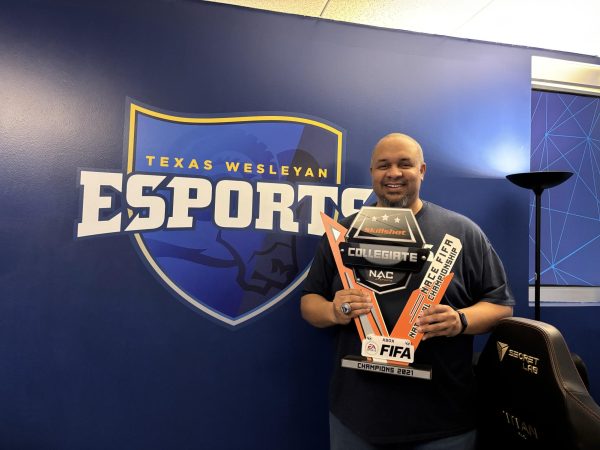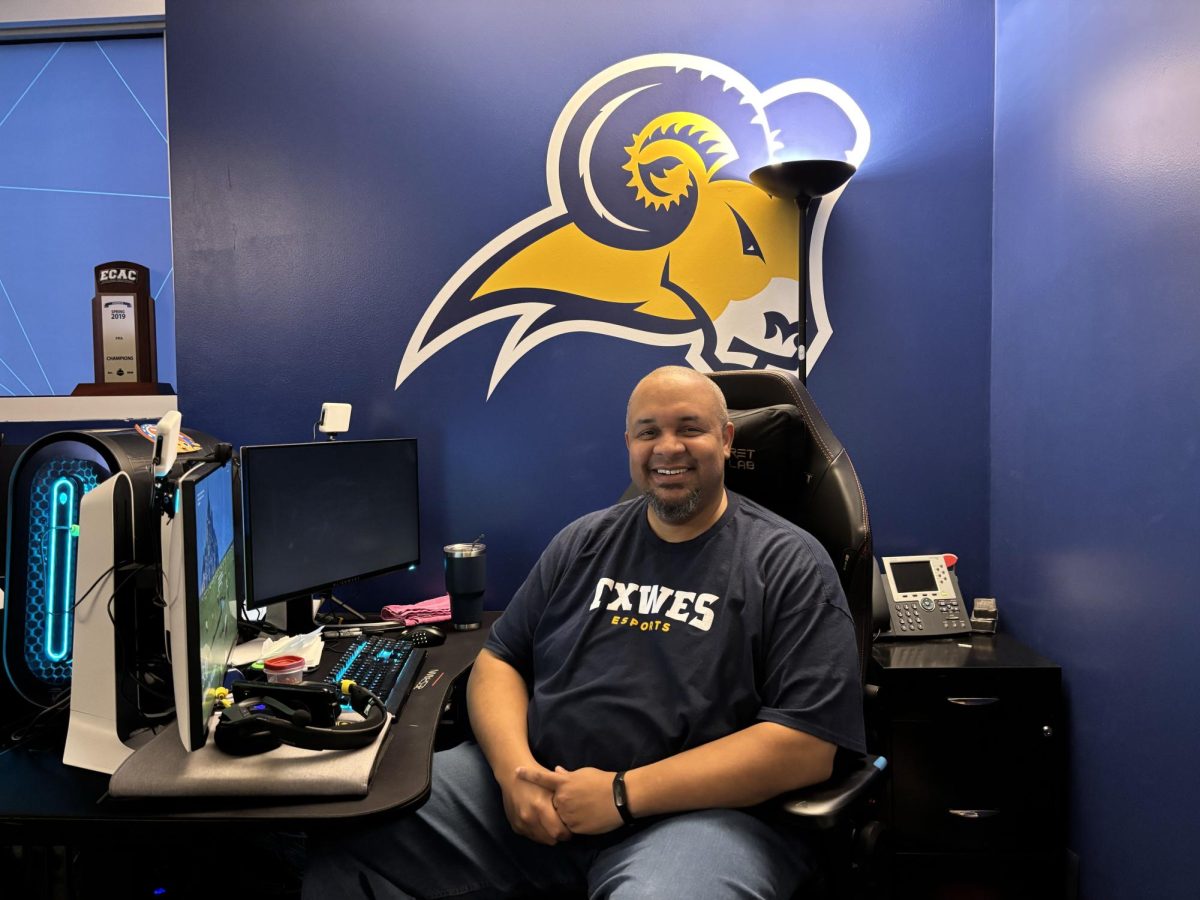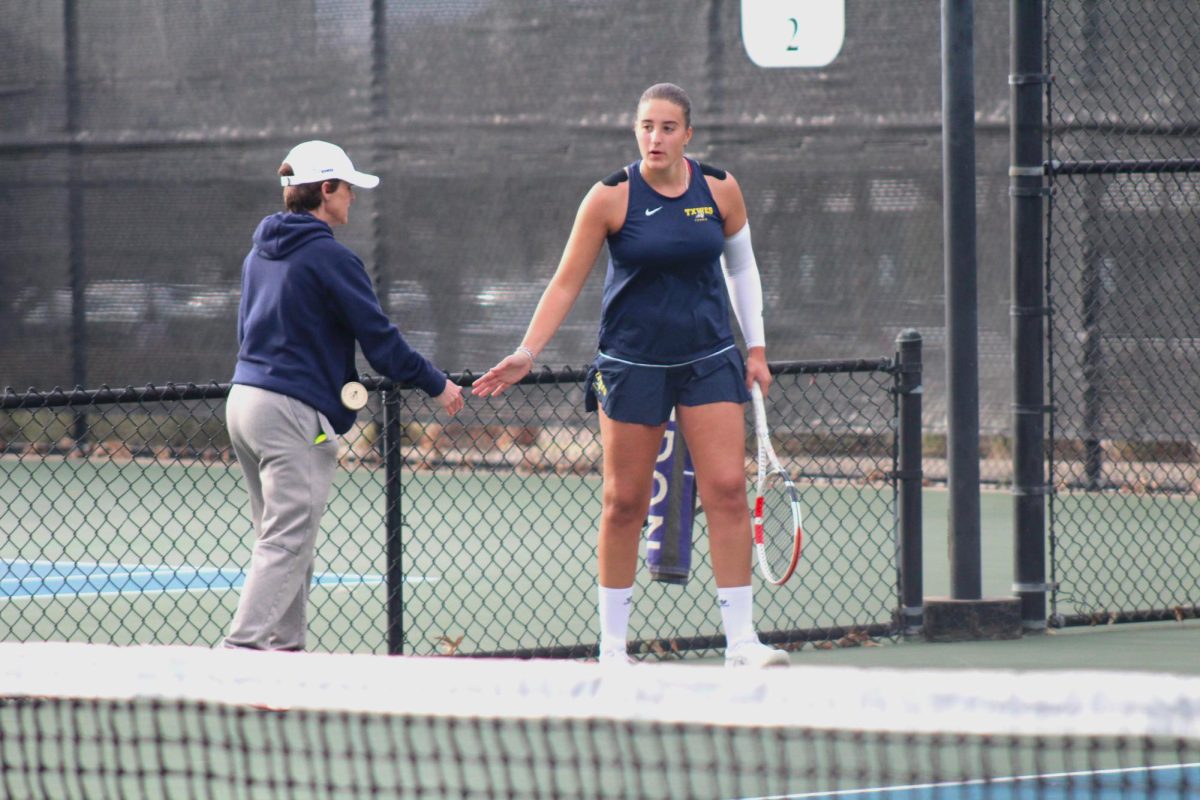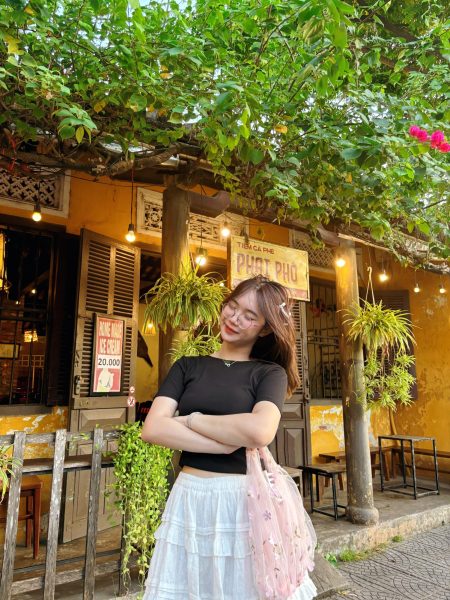When Eugene Frier arrived at Texas Wesleyan University in 2015, esports was not part of the student experience. As the assistant dean of students, he focused on campus engagement and student activities, always searching for ways to bring students together. It wasn’t until 2018 that he helped launch TXWES Esports, a program that has since evolved into a welcoming, career-focused and community-driven space for students of all backgrounds.
“Eugene has always engaged in student learning and development through play theory,” said Barbara Walker, director of student activities at Texas Wesleyan. ”From the start, his leadership has been rooted in creating experiences that allow students to grow, not just academically but personally.”
Frier’s vision for esports extended far beyond competition. He wanted to create an environment where students could develop skills, find community and explore opportunities in gaming, media, and beyond.
“Eugene is making sure that esports isn’t just a gaming department but a community where people can bond and be themselves,” said Nijah Akpan, a junior psychology major and community manager for TXWES Esports.
Frier’s early focus was on building competitive teams, but by 2019, he saw an opportunity to expand esports into a more inclusive program. He integrated content creation, streaming and pop culture events, ensuring that the program welcomed students beyond just competitive players.
“Eugene saw early on that esports could be more than just competition,” said Michael Nguyen, assistant director of esports at TXWES. ”By expanding the program to include content creation, streaming, and pop culture events, he made esports accessible to more students. That shift helped build a more inclusive and engaging community, where students could find their place whether they were competitors, content creators or just passionate about gaming.”
For students like Akpan, who helps manage the esports community, that inclusive vision has shaped her experience at TXWES.
“Working as their community manager, I have been able to connect with so many different people that I would’ve never met if I didn’t branch out,” she said.
Beyond the esports lab, Frier has made an effort to integrate esports into other areas of campus life. When Akpan hosted a dodgeball tournament as a student intern for student activities, Frier encouraged TXWES Esports to participate and support the event.
“Eugene had the esports department come out and support, so that made the event all the more fun,” Akpan said.
Frier’s leadership style is defined by his ability to listen, encourage new ideas and create a space where students feel valued.
“Eugene has done a very good job of making everyone feel included, comfortable and like their opinions matter,” Akpan said. ”He is respectful and not only has great ideas but listens to others.”
That sentiment is echoed by Walker, who has worked with Frier for nearly a decade.
“Eugene’s leadership is communicative, servant-focused and creative,” Walker said. ”He doesn’t just build programs; he builds relationships. His ability to connect with students and make them feel valued has left a lasting mark on campus.”
For Nguyen, who has worked alongside Frier since 2018, the secret to his leadership is a balance of heart, wisdom and humor.
“Eugene leads with heart, insight and a sense of fun,” Nguyen said. ”He [Frier] genuinely cares about every student, always thinks ahead to make the program better and knows how to keep things light even in high-pressure situations. That combination makes him an incredible leader and mentor.”

As TXWES Esports moves forward, Frier is focused on expanding the program’s outreach by developing high school partnerships, increasing career coaching opportunities and creating more pathways into the esports industry.
“Esports is growing, and we want to make sure our students have every opportunity to be part of it—not just as players, but as professionals,” Frier said. ”By expanding our outreach to local high schools and increasing career development initiatives, we’re building pathways that help students turn their passion for gaming into real-world opportunities.”
Nguyen has also played a key role in strengthening alumni engagement, ensuring that former students stay connected to the program.
“Alumni engagement is one of the most valuable parts of our program,” Nguyen said. ”It allows students who loved their time in TXWES Esports to stay connected and give back. Whether it’s through alumni streams, commentary or mentorship, it keeps our esports community strong.”
Akpan believes that TXWES Esports will continue to grow under Frier’s leadership, not just in size but in influence and collaboration with other campus organizations.
“I see the esports department continuously progressing and succeeding under Eugene’s guidance,” she said. ”It would be great to see even more collaborations with other student organizations, campus departments or esports teams from different schools.”
Frier’s influence at Texas Wesleyan extends far beyond gaming tournaments and content creation. His impact is seen in the students who grow under his mentorship, the alumni who stay engaged and the community he has built within TXWES Esports.
“Eugene has built more than just an esports program—he has built a family,” Nguyen said. ”Whether you’re a competitor, a content creator or just someone who loves gaming, there’s a place for you here. His leadership has shaped TXWES Esports into a space where students can grow, connect and prepare for careers in the gaming industry. If he left tomorrow, the culture, the alumni network, the friendships—all of it would still be here. That’s what makes it special.”
For Akpan, Frier’s authenticity is what truly sets him apart.
“No matter what, Eugene is himself through and through,” she said. ”This quality creates a safe, comfortable space for everyone.”
Walker agrees, believing that Frier’s legacy will be remembered as one of innovation and impact.
“Your effort, work and presence are felt on this campus,” Walker said. ”People can connect with you in a way that feels easy, and the impact of that creates a ripple effect—others feel welcomed because you welcomed them first.”
For Frier, the goal has always been simple: creating a space where every student feels like they belong.
“This program is for everyone,” he said. ”I want students to know that when they walk into our space, they’re home.”









![Pippin, played by Hunter Heart, leads a musical number in the second act of the musical. [Photo courtesy Kris Ikejiri]](https://therambler.org/wp-content/uploads/2025/04/Pippin-Review-1200x800.jpg)
![Harriet and Warren, played by Trinity Chenault and Trent Cole, embrace in a hug [Photo courtesy Lauren Hunt]](https://therambler.org/wp-content/uploads/2025/02/lettersfromthelibrary_01-1200x800.jpg)
![Samantha Barragan celebrates following victory in a bout. [Photo courtesy Tu Pha]](https://therambler.org/wp-content/uploads/2025/05/20250504_164435000_iOS-834x1200.jpg)





![Hunter Heart (center), the play's lead, rehearses a scene alongside other student actors. [Photo courtesy Jacob Sanchez]](https://therambler.org/wp-content/uploads/2025/04/thumbnail_IMG_8412-1200x816.jpg)
![Student actors rehearse for Pippin, Theatre Wesleyan's upcoming musical. [Photo courtesy Jacob Rivera-Sanchez]](https://therambler.org/wp-content/uploads/2025/04/Pippin-Preview-1200x739.jpg)
![[Photo courtesy Brooklyn Rowe]](https://therambler.org/wp-content/uploads/2025/05/CMYK_Shaiza_4227-1080x1200.jpg)

![Lady Rams softball wraps up weekend against Nelson Lions with a victory [6 – 1]](https://therambler.org/wp-content/uploads/2025/04/Screenshot-2025-04-04-100924-1200x647.png)

















![The Texas Wesleyan University women's golf team walks the course. [Photo courtesy of Corrina Griffin]](https://therambler.org/wp-content/uploads/2025/04/rounds-902x1200.jpg)

